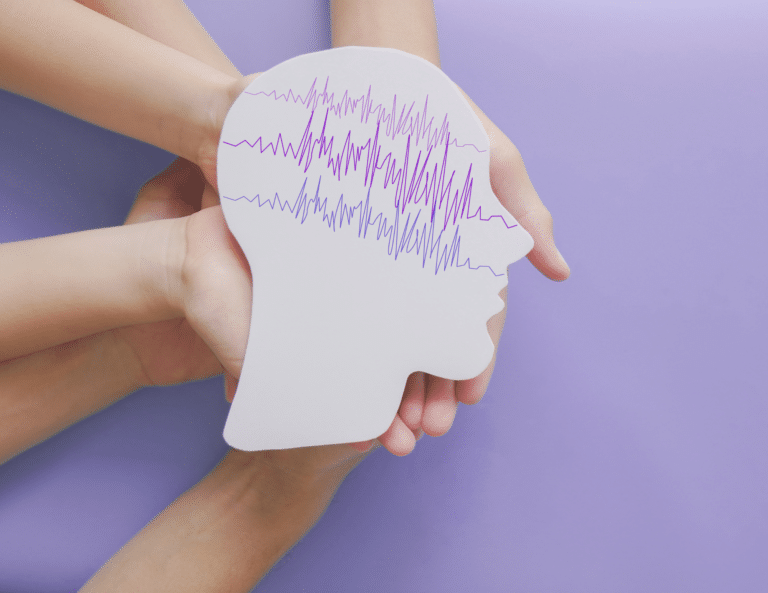
Understanding Epilepsy: A Comprehensive Guide
This article delves into epilepsy, a neurological disorder affecting millions globally. It explores the different types of seizures, the spectrum of symptoms, and various treatment options, including both conventional and natural approaches. We’ll also discuss how mindset can influence a person’s experience with epilepsy.
What is Epilepsy?
Epilepsy is a chronic condition characterized by abnormal electrical activity in the brain, leading to recurring seizures. These seizures impact an individual’s awareness, behavior, movements, and sensations. It affects people of all ages and backgrounds, with an estimated 65 million individuals globally diagnosed with the disorder.
Types of Epilepsy
Several types of epilepsy exist, categorized based on the seizure origin in the brain:
- Generalized Epilepsy: Electrical activity originates in both brain hemispheres, causing impaired awareness and loss of consciousness during seizures. These can be further classified as motor-onset (involving movements) or non-motor onset seizures (like absence seizures with brief lapses in awareness). Examples of motor-onset seizures include tonic-clonic seizures (previously known as grand mal seizures) with muscle jerks, clonic seizures with rhythmic jerking motions, tonic seizures with overall stiffening, atonic seizures with sudden loss of muscle control, and myoclonic seizures with brief muscle twitches.
- Focal Epilepsy (Partial Epilepsy): Seizures arise from a specific brain region, impacting only the body parts controlled by that area. These can be simple focal (awareness maintained) or complex focal (awareness impaired) seizures. Depending on the affected brain region, symptoms may include localized muscle jerking, tingling sensations, or distortions in sight, smell, or taste.
- Combined Generalized and Focal Epilepsy: Individuals may experience both types of seizures, with some occurring more frequently than others.
- Unknown Onset Epilepsy: Seizures with unclear origins or insufficient information are classified as unknown-onset, potentially reclassified later as focal or generalized.
Symptoms and Early Signs
Epilepsy symptoms vary greatly depending on the type of seizure. They can range from simple staring spells to violent shaking and loss of alertness (convulsion). The affected part of the brain determines the specific type of seizure, and in most cases, each seizure resembles the one that occurred before it.
Early signs like auras (unusual sensations before a seizure) can precede seizures, especially focal ones. Auras can involve motor activity or sensory, autonomic, or psychic sensations, such as numbness, rising upper abdominal sensation, abnormal smells, fear, or déjà vu.
Common signs and symptoms of seizures also include:
- Gazing or staring
- Jerking in the arms or legs
- Body stiffness
- Loss of consciousness
- Breathing difficulties or cessation
- Loss of bowel or bladder control
- Abrupt falling without an apparent cause, particularly with a loss of consciousness
- Short periods of unresponsiveness to noise or words
- A look of confusion or disorientation
- Rhythmic nodding of the head in association with loss of awareness or consciousness
- Instances of rapid eye blinking and staring
- Epileptic spasms
- Brief muscle twitching
- Repeated automatic movements, such as clapping or chewing
- Changes in sensations or emotions
- Total absence of movement (behavior arrest)
Cognitive Impairment in Epilepsy
Cognitive impairment is a frequent complication of epilepsy, affecting 70 to 80 percent of patients. It can manifest as memory loss, cognitive slowing, and attention deficits.
How Mindset Affects Epilepsy
While a person’s mindset may not directly cause or improve epilepsy, it can significantly influence their experience with the condition. A positive mindset can:
- Reduce stress and anxiety, potentially lowering seizure risk. Stress and emotional factors can act as seizure triggers for some, so a positive mindset can be crucial.
- Promote effective coping strategies for better managing epilepsy challenges. A positive outlook can help individuals develop resilience and find healthy ways to cope with the condition.
- Improve treatment adherence by encouraging medication compliance. A proactive and optimistic mindset can make individuals more likely to follow treatment plans and take prescribed medications.
- Enhance quality of life by fostering acceptance and a hopeful outlook. By accepting the present situation and focusing on hope for the future, individuals with epilepsy can experience a better quality of life.
Natural Approaches to Epilepsy
While conventional medications are the mainstay of epilepsy treatment, natural remedies also exist. However, it’s crucial to consult your doctor before considering any natural approach:
- Medicinal Herbs: Herbal remedies have been used in various cultures for centuries. Some herbs, like lavender and red sage, have shown anticonvulsant effects in animal models, but more research is needed to confirm their efficacy and safety in humans.
- Nutritional Supplements: Certain supplements, like vitamin B6, D, E, and omega-3 fatty acids, may be beneficial when used alongside medication. Vitamin B6 deficiency can contribute to seizures, while vitamin
In conclusion, understanding the types, symptoms, and causes of epilepsy is essential in effectively managing and treating this neurological disorder. By raising awareness and fostering a deeper comprehension of epilepsy, we can better support individuals affected by this condition and work towards improved treatment and care.
Source: This article is adapted from content originally published by The Epoch Times.
Source: This article is adapted from content originally published by The Epoch Times.
At Northern Medical Center, our dedicated healthcare professionals are always prepared to assist you in navigating respiratory discomfort. We offer comprehensive diagnostic services, effective treatment options, and expert advice to help you regain your well-being.
Contact us today to schedule an appointment and start feeling better:
(845) 800-5118
